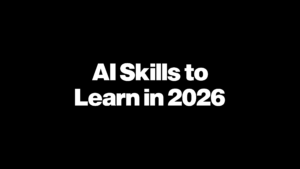The IBM Software Developer Internship: Your Ultimate Guide to Starting a Tech Career
Introduction
In the constantly changing world of technology, being awarded a defining role at an innovative company is the aspiration of every computer science student. Among the industry giants, International Business Machines (IBM) is a giant itself, with a history of innovation that dates back more than a century. An IBM internship is much more than a resume entry; it is an insider experience, a tutorial on enterprise-class software development, and a strong catapult for a shining professional career. The Software Developer Internship (Job #52240) is a rare chance to learn to apply the theories of the academic world to the realities of the real world with one of the most prestigious technology communities in the world.
What is a Software Developer Intern?
A Software Developer Intern is a graduate or student who participates in a short-term, organized work experience within a firm’s engineering department. As opposed to a salaried employee, the key priority of an intern is twofold: to make valuable contributions to ongoing projects and to go through an in-depth learning process. At IBM, for instance, this is not a matter of running errands or doing routine tasks. It’s an apprenticeship in the fullest sense. Interns are embedded in cross-functional Agile teams where they are given meaningful responsibilities, including production code writing, debugging, code review, and design input. The role acts as a vital bridge that enables individuals to take algorithmic learnings and programming skills acquired at university and apply them to tackle intricate, large-scale business issues. It is a trial ground for possible future work and an opportunity to gain insight into the culture, tempo, and expectations of a world-leading technology company.
Responsibilities and Duties
The day-to-day responsibilities of an IBM Software Developer Intern are diverse and designed to provide a holistic view of the software development lifecycle (SDLC). While specific tasks depend on the assigned team—be it Cloud & Cognitive Software, Systems, Research, or Security—the core duties remain consistent.
· Active Coding and Development: The core task is to make code contributions towards the codebase of a shipping product or internal tool. This involves developing clean, efficient, and documented code in languages of the project, including Java, Python, JavaScript, or Go.
· Bug Fixing and Troubleshooting: Interns are responsible for fixing bugs identified by testing teams or customers. This increases their debugging skills and understanding of the product’s architecture.
· Agile Ceremonies participation: Interns participate completely in the team’s Agile process. This entails daily stand-up meetings to update progress, sprint planning meetings to plan and allocate work, and retrospective meetings to discuss what was good and how it can be done better.
· Code and Design Reviews: They should give their code to be reviewed during senior engineers’ reviews, and they should be trained to review other team members’ code. This activity is important for best practice learning, code quality, and building a team culture.
Skills Required
To succeed as an IBM Software Developer Intern, one should have both technical skills and people skills.
Technical Skills
· Programming Languages: Proficiency in at least one object-oriented language is essential. Java is heavily used across IBM’s enterprise software stack. Python is invaluable for scripting, automation, and AI/ML projects. Knowledge of JavaScript (and frameworks like React or Node.js) is important for full-stack and cloud roles. C/C++ is relevant for systems-level programming, and Go is growing in popularity for cloud-native development.
· Data Structures and Algorithms: A solid understanding of basic data structures (arrays, linked lists, trees, graphs, hash maps) and algorithms (sorting, searching, dynamic programming) is a requirement, as this is the foundation for solving problems efficiently.
· Databases: Familiarity with both SQL (e.g., Db2, PostgreSQL) for structured data and NoSQL (e.g., MongoDB, Cloudant) databases for unstructured data is essential.
· Software Development Tools: Knowledge of Git for version control, Jenkins for CI/CD, and Docker/Kubernetes for containerization and orchestration is a major plus.
· Web Technologies: Knowledge of HTML, CSS, and JavaScript frameworks for front-end and full-stack positions.
· Operating Systems: Familiarity with Linux/Unix operating systems is essential, as most of IBM’s software, particularly in cloud and hybrid cloud, operates on these systems.
Soft Skills
· Problem-Solving: It is the most important soft skill to be able to deconstruct intricate problems into smaller, workable portions and to logically move towards a solution.
· Communication: Good oral and written communication is essential for working with team members, recording work, and conveying ideas.
· Adaptability: The technology environment is constantly in flux. Having the willingness and capability to quickly assimilate new technologies and techniques is a must.
· Teamwork & Collaboration: Computer programming is a team effort. The capacity to collaborate with others effectively, take constructive criticism, and be part of a supportive team is essential.
· Time Management: Balancing tasks, working to deadlines, and handling priorities are essential to being successful in a high-pressure internship.
Eligibility Criteria
Educational Qualifications The first consideration is being currently enrolled in an accredited degree program.IBM generally looks for:
· Undergraduate Students: Working towards a Bachelor’s in Computer Science, Software Engineering, Computer Engineering, Electrical Engineering, or another relevant field (e.g., Mathematics, Physics) with excellent coding skills. Students in the 2nd or 3rd year of studies are typical candidates.
· Graduate Students: Working towards a Master’s or Ph.D. in a pertinent field. These interns might be given more involved or research-based projects.
Certifications (Optional but Useful) Although not required, certifications can show initiative and fundamental knowledge. Some relevant ones are:
· IBM Certifications: Fundamental or intermediate badges in AI, Cloud, or Data Science from the IBM Skills Build platform.
· Cloud Certifications: A beginner cloud certification, e.g., AWS Certified Cloud Practitioner or Microsoft Azure Fundamentals.
· Programming Certifications: Java or Python certifications can attest to your coding abilities.
How to Apply
Job Portals and Company Websites The most direct and reliable method is to apply through the IBM Careers portal or the specific link:
Resume and Cover Letter Tips
· Resume:
· Tailor it: Mirror the keywords from the internship description (e.g., “Java,” “Python,” “Agile,” “Linux”).
· Projects Section: This is important. Define 2-3 notable academic or personal projects. For each, state the problem, technologies employed, your role, and output (e.g., “Improved query response time by 20%”).
· Include GitHub: A link to a well-cared-for GitHub profile is worth more than a dozen bullet points. Make sure that your code is clean and that repositories have README files.
· Quantify Achievements: Present impact using numbers (e.g., “Created a web application utilized by 100+ students”).
· Cover Letter:
· Be Specific: Describe why you want to work at IBM in particular. Reference projects such as Watson, Red Hat, or their quantum computing research.
· Show, Don’t Tell: Rather than “I’m a problem-solver,” tell about a time when you resolved an intricate technical problem.
· Make it Brief: One page, three or four interesting paragraphs.
Application Process Described
- Online Application: Complete the form on the portal, attach resume and cover letter.
- Recruiter Screening: Shortlisted candidates may be contacted for a quick conversation regarding background and motivation.
- Technical Evaluation: You may be directed to take a timed online coding test on a site such as HackerRank. It consists of multiple-choice questions on CS basics and 1-2 coding challenges.
- Interviews: The last step often entails two virtual interviews:
· Technical Interview: In-depth discussion about your projects, problem-solving ability (usually with a live code exercise), and CS basics.
· HR/Behavioral Interview: On your soft skills, cultural alignment, and career objectives using the STAR (Situation, Task, Action, Result) framework.
Salary Structure
Entry-Level Pay (Internship)
IBM has competitive pay for its interns.
In the U.S., the monthly average pay for an IBM software developer intern is between $4,500 and $6,800, or an annualized rate of about $54,000 to $82,000. This typically comprises perks such as subsidized accommodation, a moving allowance, and use of company premises. In India, the monthly allowance usually ranges between ₹40,000 to ₹70,000, subject to candidate experience and particular location (e.g., Bangalore, Pune, Hyderabad).
Experienced Professionals For perspective, the conversion to full-time after a successful internship registers a steep hike. In America, an IBM entry-level software developer can command a total compensation package (base salary + bonus + benefits) of between $85,000 and $110,000. The equivalent starting package in India is ₹10-18 LPA (Lakhs Per Annum).
Career Growth Opportunities
Promotions and Hierarchy A successful internship often leads to a full-time offer for an Associate Software Developer or Software Developer role. IBM has a well-defined career ladder:
- Associate Software Developer -> Software Developer
- Senior Software Developer -> Advisory Software Developer
- Staff Software Developer -> Senior Staff Software Developer
- Senior Software Developer -> Distinguished Engineer (a top technical leadership position). Promotion on the basis of performance, impact, and leadership, typically 2-3 years in the early years.
Alternative Career Streams The acquired experience provides entry points outside pure development:
· DevOps Engineer: Expertise in CI/CD, automation, and infrastructure.
· Site Reliability Engineer (SRE): Scalability, reliability, and performance focus.
· Software Architect: Developing the high-level architecture of intricate systems.
· Product Manager: Shifting into a function that determines the “what and why” of a product.
· Research Scientist: For those who enjoy working on deep tech and holding advanced degrees, shifting to IBM Research.
Interview Process
Technical Round This is the essence of the process.Ready for:
· Live Coding: You will be required to code 1-2 coding problems on a collaborative editor (e.g., CoderPad). Problems tend to be centered around introductory topics in data structures (arrays, strings, trees) and algorithms (sorting, searching, dynamic programming).
· CS Fundamentals: Detailed questions on Object-Oriented Programming (OOP) concepts, database schema design, operating system concepts, and networking fundamentals.
· System Design (for senior interns): You may be required to high-level design a simple system such as a URL shortener or a chat app.
· Project Deep Dive: Prepare to describe each line of code on your resume. Be prepared for questions regarding your technology choice, problems encountered, and how you would do the project differently now.
HR Round This round evaluates soft skills and cultural fit. Expect questions such as:
· “Tell me about yourself.”
· “Why do you want to work at IBM?”
· “Describe a time when you encountered a conflict in a team and how you addressed it.”
· “What are your strengths and weaknesses?”
· “Where do you see yourself in 5 years?” Use theSTAR method to present your answers concisely.
Common Questions
· Technical: “Reverse a linked list,” “Find the longest palindromic substring,” “Explain polymorphism.”
· Behavioral: “Tell me about a time you failed and what you learned,” “Describe a project you are proud of.”
How to Get Started
The journey begins today.
- Skill Assessment: Honestly evaluate your skills against the requirements listed. Identify gaps.
- Build Projects: Start a project that excites you. It doesn’t have to be original; a well-executed clone of a popular app can be a great portfolio piece.
- LeetCode: Practice coding problems consistently. Start with easy problems and gradually move to medium-difficulty ones.
- Network: Reach out to current and past IBM employees on LinkedIn. Join IBM-sponsored events or webinars in your university.
- Apply: Once you feel ready, apply through the official portal with a refined application
Conclusion
The IBM Software Developer Internship is an experiential opportunity that provides with more than professional exposure. It gives you an insight into the inner workings of a technology behemoth, a community of superlative peers, and a degree that will open many doors during your lifetime. The process is competitive, but with careful preparation, dedication to the subject matter of technology, and strategic effort, you can make yourself an attractive candidate. Take on the challenge, be a student for life, and begin building your future at IBM.
FAQs
Q1: How long does the IBM internship last? A:Most internships with IBM are summer opportunities that run 10-12 weeks in duration. There may be some co-op or semester-long internships available.
Q2: Does IBM offer housing or relocation aid to interns? A:Yes, for internships that are in-person, IBM usually provides a competitive relocation allowance or else offers corporate housing solutions to help cover relocation expenses.
Q3: Are international students eligible to apply for this internship? A:Yes, international students are hired at IBM. Nevertheless, you need to acquire the right visa (such as F-1 CPT in the United States) that allows you to work. IBM’s hiring team usually assists selected individuals through this process.
Q4: How significant is maintaining a high GPA? A:A high GPA (usually 3.0 and above on a 4.0 scale) is a good filter, particularly for large pools of applicants. IBM is, however, known to highly value project experience and demonstrable skills. A good portfolio and coding can sometimes overcome a not-so-great GPA.
Q5: How to prepare for the technical interview?
A: A mix of hands-on coding practice (on sites such as LeetCode and HackerRank) and theoretical study (of data structures, algorithms, and OOP concepts) is important. Above all, be ready to think out loud and explain your problem-solving steps logically in the interview.










